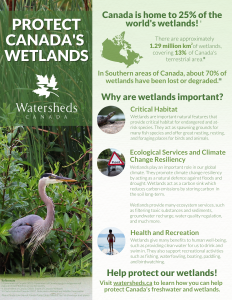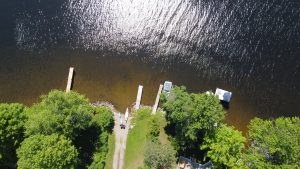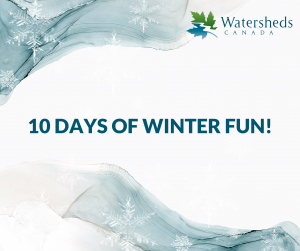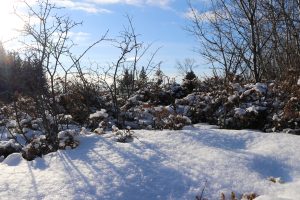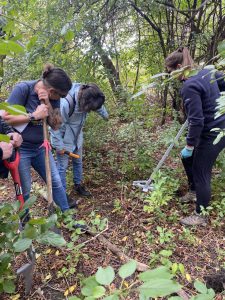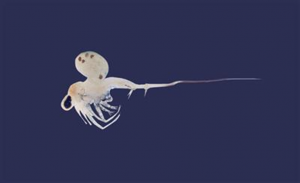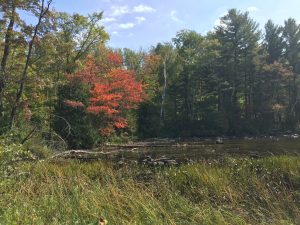by Nicole Dubé, Freshwater Health Coordinator Did you know Canada is home to 25% of the world's wetlands? In fact, there are approximately 1.29 million square kilometres of wetlands covering 13% of Canada's terrestrial area! Wetlands are important natural features that provide critical habitat for endangered and at-risk species. They act as spawning grounds for many fish species and offer great nesting, resting, and foraging places for birds and animals. They also play an important role in ... Read More
Continuing Momentum from Ontario’s Municipal Elections: One Year Later
by Darlene Coyle, Environmental Policy and Planning Lead In September, local candidates and voters in Ontario showed up at the polls to drive local change for their freshwater and shoreland health. Many people participated in Watersheds Canada's "Engaging Municipal Elected Officials to Protect our Freshwater" webinar. A year later, we want to look back at the priorities voters saw going into municipal election time and how we can help you bring important resources and programs to your ... Read More
10 Days of Winter Fun!
Each item in this series will help you and your family enjoy nature this winter as you get outside, help local species, try a new activity, and appreciate nature! All of the activities are low barrier and low cost to make them as inclusive as possible. Whether you are a seasoned winter explorer or new to Canadian winters, there are lots of small and fun ways to enjoy this season. Let's get started with Watersheds Canada’s 10 Days of Winter Fun! 1. Making Maple Taffy Maple taffy, or tire ... Read More
May all your Christmases be green
by Robert Pye, Executive Director It’s time for an ugly Christmas sweater and an eggnog mustache smile as we share the holiday cheer with our great friends and supporters of Watersheds Canada. Under many Christmas trees this year are the stunning images of otters, beavers, monarch butterflies, brook trout and wild columbine. These creations by Canadian artists, were delivered from Watersheds Canada, signed with care by our symbolic “gift of nature” givers, and addressed in honour of ... Read More
Choose your own adventure with the Ottawa Faith Community Capacity Building Program
by Jane Pangilinan, Digital Engagement Technician The Ottawa Faith Community Capacity Building (OFCCB) initiative is a collaboration between Greening Sacred Spaces and Watersheds Canada made to empower six faith communities with the ability to enhance their community, both in the environment and with each other. Bridging the gap between awareness and stewardship, the OFCCB will support and provide the resources needed to develop and lead a local environmental project. The OFFCB will help six ... Read More
Welcoming in the season of giving!
by Jane Pangilinan, Digital Engagement Technician The season of giving has arrived! As you wonder what to give your friends and family as gifts during the holidays, did you know you can create a positive impact while doing so? A great gift to give is one that gives back to communities. While there are so many deserving organizations, Watersheds Canada is a good candidate for your contributions. We are dedicated to protecting Canada’s freshwater resources through providing education and ... Read More
Invasive Aquatic Species: The invaders we can and cannot see
by Christopher Dennison, Municipal Policy Intern Most lakeshore residents in Ontario have likely heard of at least one aquatic invasive species and the significant threats they pose to freshwater ecosystems. Some are hard to miss. Silver carp (Hypophthalmichthys molitrix) (not currently established in Ontario but at risk of entering the Great Lakes) are known for their propensity to leap metres out of the water in chaotic frenzies. Zebra mussels (Dreissena polymorpha) are prolific in many ... Read More
20 years of Watersheds Canada
by Robert Pye, Executive Director Planting now for our next 20 years “The best time to plant a tree is twenty years ago. The next best time is now.” Appropriately enough, the best time for Watersheds Canada to share this action-now-adage is this year as we are celebrating our 20th anniversary. It’s humbling to reminisce about Watersheds Canada’s lake association roots that were planted around the turn of the millennial. The light of twenty birthday candles shines on the fact that we ... Read More
Let Us Prioritize Freshwater this Ontario Election Season!
by Darlene Coyle, Environmental Policy and Planning Lead at Watersheds Canada Keeping up the momentum from our Engaging Elected Municipal Officials to Protect our Freshwater webinar, now is the time to act! Candidates across Ontario are campaigning for the upcoming municipal election on October 24th and it is up to you to bring freshwater issues to the top of the agenda. This is especially true since municipalities readily market their clean, beautiful, healthy freshwater for tourism, ... Read More
Give Bats a Home this Halloween!
Though we don't always see them, bats are incredibly important to the spaces where we live - they eat thousands of insects each night, and act as important pollinators, bringing pollen further than a butterfly or bee would be able to. This Halloween, you can provide a home for bats. Bat houses provide a place to roost and rest so they can keep doing their amazing work each night. You can take action today by Giving Bats a Home this Halloween! This is not an in-person or online event. The ... Read More
- « Previous Page
- 1
- …
- 8
- 9
- 10
- 11
- 12
- …
- 18
- Next Page »

